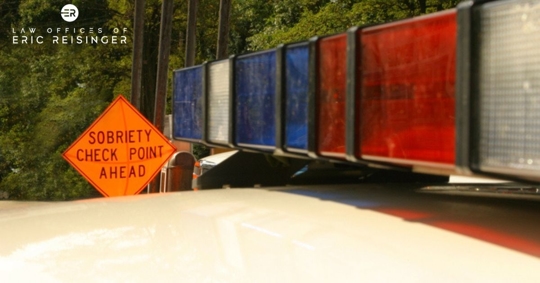Understanding DUI Checkpoints: Legal Framework and Operation
Picture this: you’re driving home, music low, thinking about nothing in particular—when brake lights flash ahead. There’s a line of cars. Officers with flashlights are waving drivers forward. You’ve hit a DUI checkpoint.
For many people, this moment brings a mix of confusion and anxiety. You might wonder, What can they legally do? What are my rights here? Let’s break it down so you can understand what’s allowed, what’s not, and how to handle these stops calmly and confidently.
Constitutional Basis and Supreme Court Rulings
DUI checkpoints walk a fine line between public safety and personal privacy. The Fourth Amendment protects against unreasonable searches and seizures, but the U.S. Supreme Court—most notably in Michigan Dept. of State Police v. Sitz—ruled that these checkpoints are legal if done correctly.
The reasoning? While they do intrude on privacy, the public interest in stopping drunk driving is considered more important—as long as officers follow strict guidelines. That means no random stops without rules in place, and procedures must be consistent and fair.
State-Specific Laws and Variations
Even though the Supreme Court gave checkpoints the green light, each state plays by its own rules. Some states, like Texas, ban them outright. Others allow them but require things like advance public notices in newspapers or radio.
The takeaway? Don’t assume what’s legal in one state applies in another. Knowing your state’s stance is the first step in being prepared.
Your Rights at DUI Checkpoints
Right to Remain Silent
When you’re stopped, you still have your Fifth Amendment right to remain silent. You must show your license, registration, and proof of insurance, but you don’t have to answer questions like “Have you been drinking tonight?”
If you choose to stay silent, do it respectfully. A simple, “I’m choosing to remain silent,” keeps things clear without inviting trouble.
Search and Seizure Rules
Your Fourth Amendment rights still apply. Officers can’t search your car unless they have probable cause, a warrant, or your consent. And be careful—sometimes casual cooperation can be interpreted as permission.
If they ask to search your car and you don’t want that, you can politely refuse unless they present legal authority to do it.
What Law Enforcement Can—and Can’t—Do
Identification, Questions, and Sobriety Tests
Police can ask for your ID and vehicle documents. They can’t make you answer unrelated questions without cause.
If they suspect you’re impaired, they might request a breathalyzer or sobriety test. Refusing may have consequences under your state’s “implied consent” laws, so know the rules where you drive.
Keeping Stops Short
Checkpoints aren’t meant to hold you up forever. Stops must be brief and based on neutral criteria—not an officer’s personal choice. If they don’t see signs of impairment, they should send you on your way.
Challenging an Unlawful Stop
Filing a Legal Challenge
If you think a checkpoint stop crossed the line, you can challenge it. That might mean gathering evidence, finding witnesses, or showing that procedures weren’t followed.
A successful challenge could get charges dropped or lead to changes in how checkpoints operate in your area.
Civil Rights Violations
Sometimes a stop isn’t just inconvenient—it’s unlawful. That could mean illegal searches, discriminatory treatment, or unnecessary detention. In those cases, you may have grounds for a formal complaint or even a lawsuit.
Practical Tips for Handling DUI Checkpoints
Before and During the Stop
Have your documents ready. Slow down, follow instructions, and keep things polite. The calmer you are, the smoother it goes.
If they ask questions beyond the basics, you can politely decline. Being firm but respectful keeps interactions professional and avoids escalation.
After the Stop
If something didn’t feel right, write it down immediately—details fade fast. Those notes could be important if you decide to take legal action later.
Protect Your Rights
DUI checkpoints can be stressful, but you don’t have to face the fallout alone. The Law Offices of Eric Reisinger, PA is committed to defending your rights and guiding you through the process every step of the way. One call could make all the difference in protecting your future.
If you were stopped in Sarasota, FL, and believe your rights were violated—or if you’re facing DUI charges—call (941) 541-5335.

